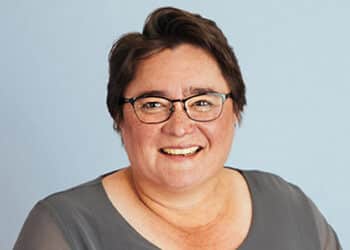Accountants, the clock is ticking for you to apply for an Australian Financial Services Licence (AFSL).
Are you an accountant providing SMSF set-up advice? 30 June 2016 is fast approaching. After that date, the ‘accountants’ exemption’, which accountants have relied on to provide clients with SMSF advice, ceases to have effect. Unlicensed accountants who did not lodge an AFSL application which meets ASIC’s requirements by 1 March 2016 run a significant risk that their application will not be assessed before 30 June 2016 and you will not be able to continue to provide SMSF advice after this date. If you provide financial services advice without a licence after this date you could be exposed to serious penalties or up to two years’ imprisonment or a fine of $36,000 for individuals or $180,000 for companies. So hurry, the clock is ticking!
Based on our close work with Kath Bowler and her team at Licensing for Accountants, as well as providing support services and templates for accountants in conjunction with the CPA and Chartered Accountants Australia and New Zealand, we have put together a list of common FAQs to help you understand the new licensing requirements for accountants.
The application process
1. What are the financial requirements for solvency and cash needs?
The key financial requirements ASIC is looking for is that you are solvent from day one, and your net assets exceed your net liabilities. Also, you need to show you will meet anticipated cash flow expenses e.g. how you will fund costs such as PI, any excess on your PI policy, and annual costs such as FOS fees. One method that may be accepted to meet anticipated cash flow expenses is to show access to further funds in a letter of guarantee from the parent accounting entity that it will fund any costs incurred by the licensed entity, if the entity applying for the limited licence is a subsidiary of the accounting entity.
2. Do all nominated responsible managers need to be public practice certificate holders to receive the experience exemption when applying for a limited AFSL?
Yes
3. Is an A5 business description core proof required for a limited AFSL?
Yes, this is a requirement for both the full and the limited licence.
4. Is completing the $15 Bankruptcy Register Search on the AFSA website (https://www.afsa.gov.au/online-services/bankruptcy-register-search) sufficient for the bankruptcy check?
Yes.
5. If you expand the scope of your licence (limited or full), do you have to demonstrate experience requirements? Are there any other issues, other than additional education requirements?
Nominated responsible managers will need to have the appropriate education and experience to expand the scope of an existing licence. Limited licensees only need to show completion of the relevant RG146 training modules (until 30 June 2016). Any application to expand the scope post-30 June 2016 will require additional experience requirements in line with options 1-5 in ASIC’s Regulatory Guide (RG) 105.
6. If you expand the scope of your licence (limited or full), do you have to re-submit all your proofs?
While you should be able to leverage off your existing proofs, you will need to submit a separate application with new proofs that relate specifically to both your existing business, and the authorisations you are seeking.
7. What is your view on smaller licensees with only one responsible manager having a reciprocal agreement with another licensee to be a replacement responsible manager if they are absent?
A responsible manager should have ongoing oversight of the financial services being provided by the business. When a responsible manager is not part of the business, ongoing oversight becomes difficult to demonstrate. We advise against this arrangement.
Training (RG146 and RG105)
8. What are the training requirements for a limited licence in terms of RG105 (as opposed to RG146)? Is an accounting degree, together with a short course that just covers RG146 in superannuation and SMSFs sufficient to apply for the limited licence?
In short, the answer is yes, if the applicant is only applying for superannuation authorisations.
The long answer is that it is important to determine the authorisations that are being applied for under the limited licence and the direct responsibility that each responsible manager will have for the financial service and financial product authorisations. All nominated responsible managers collectively will need to satisfy the knowledge component for all authorisations being applied for.
If the applicant is relying on option 3 of RG105 they can demonstrate the knowledge component by providing evidence that they:
• Hold a university degree in a relevant discipline (accounting degree); and
• A relevant short industry course (e.g. an RG146 course listed on the ASIC training register).
So, a person who has completed an accounting degree together with a short course in superannuation and SMSF products will likely be able to apply for a limited licence.
The holder of a limited AFS licence with the above superannuation and SMSF training course can apply to be authorised to provide:
• Advice on, and dealing in, an interest in an SMSF
• Advice on superannuation products in relation to a client’s existing superannuation holding where required for:
– recommending the establishment of an SMSF
– advising on contributions or pensions under a superannuation product
• ‘Class of product’ advice about superannuation products, but not securities, general insurance, life insurance, basic deposit products and simple managed investment schemes (these typically require completion of further training modules).
You should also note ASIC’s expectation regarding the number of responsible managers that need to be nominated. While ASIC states that the number will depend on the nature, scale and complexity of the business, it does state at RG105.38 that it expects applicants to nominate at least two responsible managers. In our view, it would be possible to get a “full” limited licence where one responsible manager has completed an RG146 course in superannuation and SMSFs, and the other responsible manager has completed RG146 training in the other financial product classes.
9. Does the study have to be related to the licence authorisation I’m applying for?
Yes, the financial product authorisations applied for will determine what the relevant short courses must cover for responsible managers to collectively meet the knowledge component. See the response to question 8 above.
Ongoing questions
10. If an individual authorised representative prepares a Statement of Advice (SOA), then leaves the firm, does another SOA have to be prepared?
The Corporations Act creates the concept of “providing entity” when setting out requirements to provide an SOA. The providing entity is essentially the person that provides the personal advice and this may be the individual authorised representative, the corporate authorised representative or the licensee. The providing entity may be different to the person that prepares the SOA.
If the individual authorised representative is the providing entity of the advice, a new SOA will be required when a new authorised representative provides personal advice to the retail client. In contrast, if the licensee (or corporate authorised representative) is the providing entity of the advice and a new employee prepares the further personal advice that is given by the same licensee (or corporate authorised representative), a new SOA is not required if there has been no significant change to the client’s circumstances or the basis of the advice. In this instance, a Record of Advice (ROA) may be given for the further advice.
Where a new SOA is required to be given, it can incorporate by reference information from the old SOA.
11. Are any of the exemptions in Regulation 7.1.29 of the Corporations Regulations 2001 limited to CA/CPA/IPA members who do not want to be licensed at all?
There are no exemptions specifically linked to memberships of CA/CPA or IPA except the SMSF set up/wind down exemption that will be removed on 1 July 2016. The remaining exemptions apply more broadly than just to accountants.
12. Can a non-licensed accountant use the ongoing disclaimers about not being licensed as contained in Regulation 7.1.29(4) if their employer (practice) is licensed as an authorised representative with a dealer group?
The exemptions cannot be relied upon if you are providing financial product advice as an authorised representative.
However, if an accountant has not been sub-authorised by the practice (or authorised directly by the licensee) they can still provide financial product advice to their client on taxation issues without needing to be licensed as long as they include the disclaimer under regulation 7.1.29(4). However, the accountant cannot give financial product advice other than on tax issues and the remuneration for the advice must be fee for service. The accountant would also need to be registered under the Tax Agent Services Act 2009.
The advice process / charging
13. Are two terms of engagement required for work completed as a licensed adviser and as an unlicensed accountant?
Having separate terms of engagement is the clearest way to manage licensing, contractual and insurance obligations. However, two separate letters of engagement would not necessarily be required, provided it is clear in the engagement letter which entity is responsible for which pieces of advice or services. This could be done, for example, by having two separate schedules attached to the engagement letter.
14. Do you have to charge fees for the advice you provide?
There is no legal requirement that you must charge for any advice provided.
However, if you operate with two entities, it needs to be clear to the client which entity is providing which services. For example, if you include the cost of the advice in your accounting fees, you need to ensure the client doesn’t perceive that the financial product advice came from the accounting entity.
15. Are you able to send the client one invoice from the accounting business, which covers both the accounting and planning work? If it is possible to send one invoice, does this invoice need to clearly separate the amount owing for advice work and that for accounting work? If it does need to do that, how do you separate that work when part of the cost will relate to meetings, conversations and services that equally relate to licensed and unlicensed work (e.g: annual get togethers, newsletter services, administration time to send out materials to clients that could relate to both areas)?
It is quite possible to send one invoice from the accounting practice that covers both the financial services provided under the licence and the accounting work. Chapter 7 of the Corporations Act 2001 provides for the licensing regime, and is silent on how an accounting firm decides to structure its revenue arrangements between the accounting and financial services aspects of the practice and is silent on the form of invoicing.
What needs to be navigated is the disclosure requirements in the Act that apply to the financial services aspects of the practice. Broad fee disclosure needs to be set out in the Financial Services Guide (FSG) – and the actual fees charged must be set out in the SOA. If there is an ongoing fee arrangement – e.g. an ongoing engagement where fees are paid over a period of more than 12 months, the client needs to be given an annual Fee Disclosure Statement (FDS) giving them information about what they paid (in dollars) and what they were entitled to receive under the arrangement and what they actually received.
In practice it would make it clearer if the fee allocated to the financial services component appears under a separate heading in the invoice so that it can be compared to what is in the FSG, and the SOA and so that if it is required it is easy to find the information and report it in the annual FDS. Practices will need to give some thought to how they are going to structure or allocate their revenue between the different aspects of the business and how they will disclose the fees relating to the financial services. This is ultimately a logistics and administrative issue that requires clear disclosure.
16. In a situation where a business is only known publicly by a business name, but the limited AFSL is held in the name of an underlying company, does the name of that company need to appear on letterhead as well the AFS licence number?
The letterhead must be clear about who the licensee is. If the licence is held by a company different to the publicly known company and business name, it should be clear that the holder is different from the publicly known company and business name.
In relation to quoting an AFSL number, the law only requires (as relevant to accountants who don’t issue their own products) the AFSL number to be quoted on certain documents – FSGs, supplementary FSGs, and SOAs. However, we think it’s good practice to include the AFSL number in all public documents.
Where the holder of an AFSL is a company, the law requires that the company’s name be included in all public documents together with either the Australian Company Number (ACN) or Australian Business Number (ABN). Where a business name is used, the law requires that the business name be included in any business document. Certain business documents like invoices also require the ABN to be quoted (where the company has an ABN).
Putting aside what is a business document or a public document, we think it is good practice to include the business name in your letterhead as well as setting out somewhere on the first page of the document the company name and ABN (or ACN if no ABN exists). For example, ABC Pty Ltd ABN 12 345 678, trading as DEF, AFSL #123456.
By Paul Derham, Fiona McCord, Jesse Vermiglio, Holley Nethercote and Kath Bowler, Licensing for Accountants


